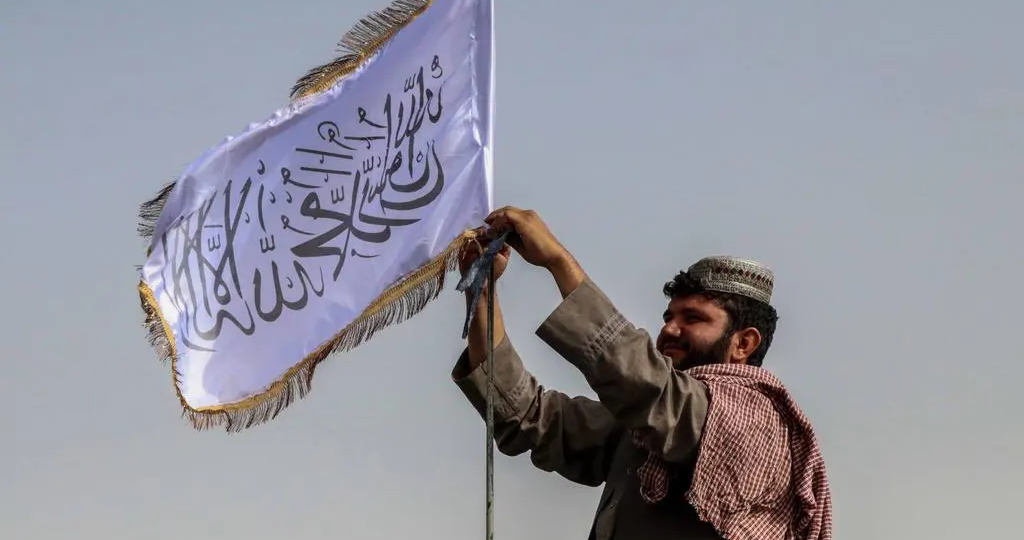
Nearly three and a half years after the withdrawal of American forces from Afghanistan, the Taliban's promises are far from being kept. But are we really surprised?
Who are they?
The Taliban are a Sunni group created in 1994 to fight the Islamic State of Afghanistan. They benefited greatly from the fall of the Soviet Union and the chaos caused by the withdrawal of Red Army troops in the region. At that time, the group also benefited from significant financial support from Saudi families. This emergence quickly translated into military terms, where it took them only two years to take control of Kabul, before dominating, in 1998, nearly 90 % of the country in their conflict against the Islamic State of Afghanistan.

Several factors explain the Taliban's success. First, the group has benefited from the general chaos that reigns in the country. Faced with an unstable political situation, they have been able to benefit from the support of the Afghan people, who, after years of oppression, saw them as liberators capable of bringing stability. The Taliban have skillfully exploited this sense of injustice to present themselves as heroes and rally popular support. In addition, Pakistan has contributed to their emergence for economic purposes, providing them with considerable funds.
The Taliban claim to follow Sharia law. They believe that Sharia is the only way to govern a country, and their goal is to make Afghanistan a model Islamic state. They strongly oppose Western values, including concepts of freedom such as freedom of expression, religion, and women's rights. One of the values advocated by the Taliban is patriarchy, which significantly reduces the place of women in society.
However, the group, now led by Hibatullah Akhundzada, remains extremely violent. The Taliban rose to power and maintained their rule through the constant use of violence. Between 2007 and 2021, an estimated 47,000 civilians were killed in the country. The group is also responsible for violence against its own people, including public executions, rape, and other forms of oppression. They have also often maintained close ties to terrorist groups, such as al-Qaeda. Afghanistan had sheltered the terrorist group led by Osama bin Laden in exchange for military support. It was notably from Taliban territory that the 9/11 attack was orchestrated by bin Laden and his accomplices, angering the United States, which subsequently ousted the Taliban from power.
What is their policy?
For the Taliban, a country must be run according to the laws of Sharia. Sharia, an Islamic legal system derived from the Quran and the Hadith (sayings and actions of the Prophet Muhammad), governs both personal conduct and legal matters. The problem lies in the Taliban's rigid and archaic interpretation, which applies these rules as if they were frozen in the 13th century. This system leads to violent practices: "disruptive elements" are publicly punished with amputations or public executions.
The Taliban also adopt a common strategy among authoritarian regimes: censorship. All activities deemed inconsistent with Islam are strictly prohibited. Fundamental freedoms, such as those of women, the press, or expression, are systematically repressed. A notable example is that of Mortaza Behboudi, an Afghan journalist who obtained French citizenship, imprisoned for nearly seven months in 2023 for simply doing his job. In 2024, an estimated 29 journalists were officially imprisoned because of this censorship policy.

Economically, the Taliban aspire to make the country economically self-reliant. They seek to control Afghanistan's natural resources in order to develop economic ties, particularly with Pakistan and China. Currently, about 60,% of the country's exports go to Pakistan. A Chinese company, Gochin, has proposed investing $10 billion in lithium mining, a valuable resource whose total value of Afghanistan's mineral wealth, such as copper and lithium, is estimated at between $1 trillion and $3 trillion. In 2024, Afghanistan's total exports were estimated at about $2.7 billion.

In addition, the Taliban must contend with the growing threat of the Islamic State in Khorasan (ISIS-K), which is seeking to take over the country. ISIS-K is believed to have infiltrated its members within the Taliban itself. The two groups differ in their views of Islam: ISIS-K views the Taliban as having a “moderate” interpretation of Sharia law. While the Taliban is focused on Afghanistan, ISIS-K aims to extend Sharia law globally. Between September and November 2021, ISIS-K carried out no fewer than 76 attacks against the Taliban. The terrorist group has also expanded its activities to Russian soil. In March 2024, an ISIS-K-orchestrated attack in Moscow killed 145 people and injured 551 others, prompting Russia to move closer to the Taliban regime in an effort to combat this common threat.

Why are the Taliban a problem?
When the United States left Afghanistan in 2021, the Taliban promised to respect human rights and not allow terrorism to return to the country. It is clear that the Taliban have not kept their word.
Known for their close ties to Al-Qaeda, the Taliban had promised the international community to prevent the group from reestablishing itself in the country, at the request of the United States, knowing that the September 11 attack had been planned in Afghanistan. However, a 2022 United Nations report confirmed that Al-Qaeda continued to operate in the country, with some of its members recruited from within the Taliban itself. Ayman al-Zawahiri, the leader of the terrorist organization, was also eliminated in Kabul in 2021, confirming the group's presence in the country.
Women's rights are another major issue under the Taliban regime. Women's freedoms have been severely curtailed since their return to power. Today, going out on the street or even being seen from a window can lead to obscene acts, as documented by Zabihullah Mujahid on X. The Taliban have imposed many restrictions on Afghan women, including banning them from high school. An Afghan woman named Fatima said: "It's as if they wanted to eliminate us, as if we didn't exist." Zahra, for her part, explained: "I feel trapped in my own country, unable to move freely," referring to the ban on women travelling abroad unaccompanied. Finally, Malalai, a former university professor, testified: "We are no longer part of society, we are just prisoners of our homes."

In addition, since the return of the Taliban, the country has been experiencing a major humanitarian crisis. It is estimated that nearly 90,000 people in the country are food insecure. About 2.7 million Afghans have left the country since the summer of 2021.
Another problem is the Taliban’s geopolitical rapprochement with China and Russia. Both powers view Afghanistan as a potential lever to stabilize a region facing the growing threat of the Islamic State of Khorasan (ISK-S), which is seeking to expand its influence. By collaborating with the Taliban, Beijing and Moscow aim to contain this threat while protecting their regional interests. This rapprochement is not only for security, but also economic. Afghanistan, rich in natural resources and strategically located in the heart of Asia, is becoming an economic partner of choice, particularly for China. With its ambitions related to the “Belt and Road” initiative, Beijing sees this cooperation as an opportunity to expand its commercial and infrastructure influence in the region.
Moreover, this alliance serves broader geopolitical goals. For China and Russia, strengthening their ties with the Taliban is a way to challenge the United States in the competition for global leadership. By bringing Afghanistan into their sphere of influence, these powers seek to reduce American hegemony and consolidate their role in reshaping the global order.
In conclusion, the return of the Taliban to power in Afghanistan symbolizes a bitter disillusionment. More than a surprise, it is a cruel reminder of Western naivety, which relied on promises quickly forgotten by the new masters of Kabul. Human rights, particularly those of women, are today trampled underfoot in an almost resigned indifference of the international community. As for the hoped-for stability, it remains a mirage. Afghanistan remains a hotbed of tensions fueled by complex geopolitical issues, where the rivalry of the great powers is mixed with persistent insecurity. This situation raises a burning question: in a world where power relations are becoming increasingly multipolar, do democratic and humanitarian values still have a place in the face of economic and strategic interests?
RELATED POSTS
View all



